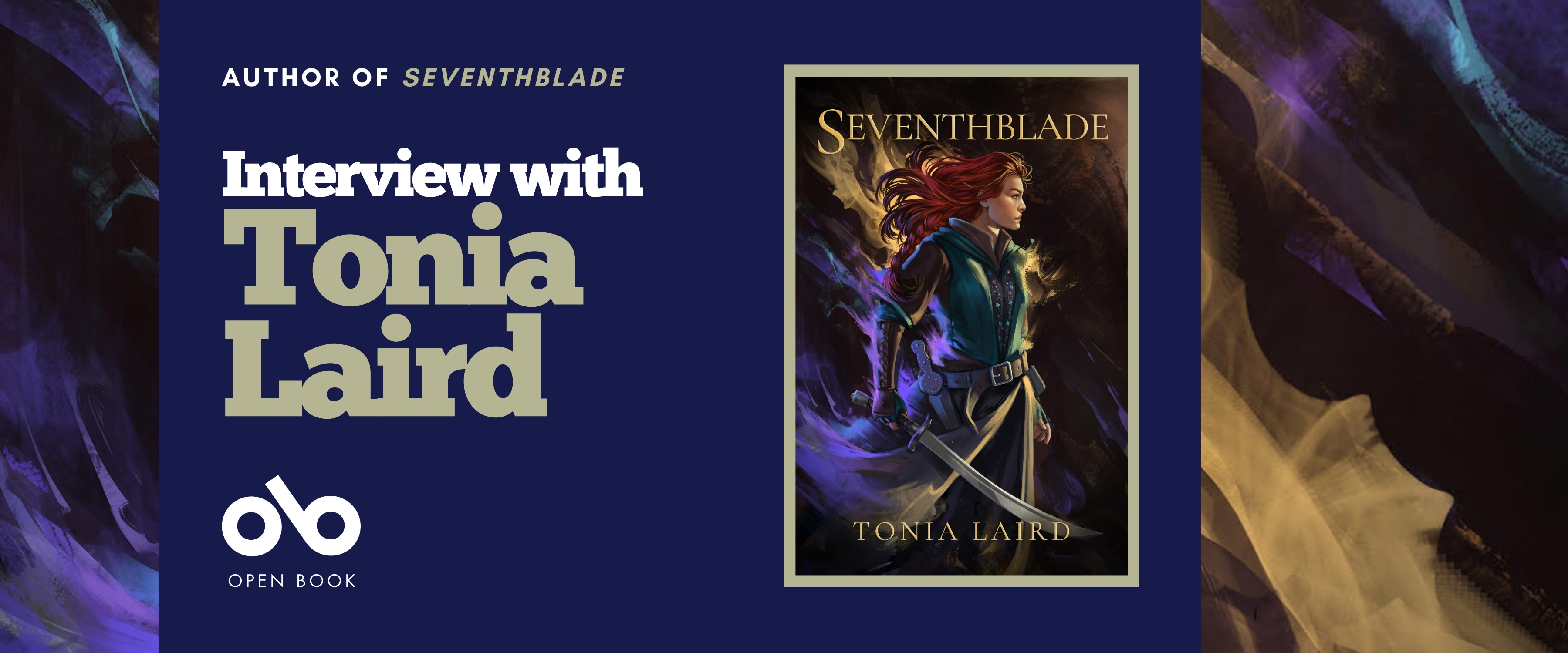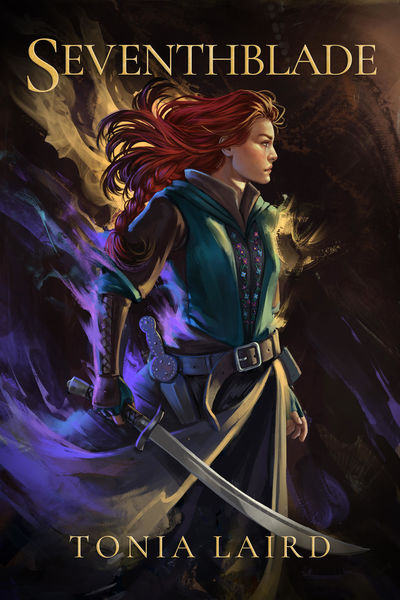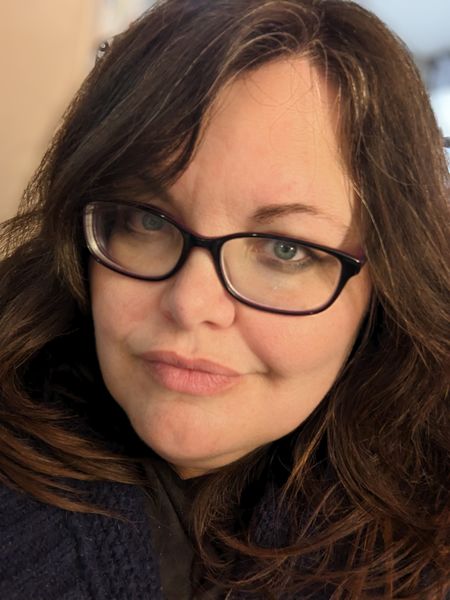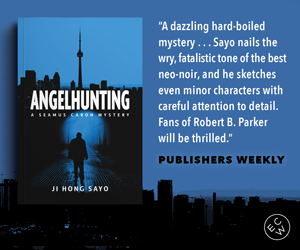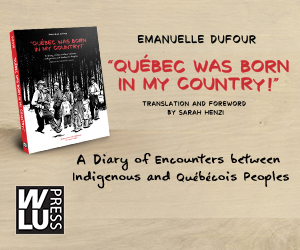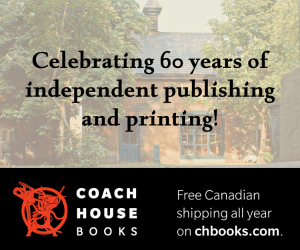Indigenous Storytelling Meets Fantasy-Adventure in Tonia Laird's New Novel, Seventhblade
Our featured author today, Tonia Laird, has had a fascinating and unique journey in storytelling, with multiple publications in magazines and journals and a career in the video game industry as a lorekeeper, writer, and world-builder. Her talents are on full display in the new fantasy-adventure novel, Seventhblade (ECW Press).
The story joins infamous Indigenous warrior T'Rayles, who has returned to the colonized city of Seventhblade to avenge her murdered, adopted son. As the daughter of the legendary Ibinnas, and armed with an ancestral sword that holds mysterious power, she takes the risk of joining with questionable allies with familial links who have been corrupted over time. As she navigates the social and political landscape of this changed place, she risks all to find the answers and justice she desperately needs.
Check out our Storytellers Fiction Interview with the author, and delve further into this complex and richly imagined novel from an exciting Indigenous voice.
Open Book:
Which authors have inspired you and/or influenced your work?
Tonia Laird:
There are authors across the whole spectrum of literature that have influenced my work. I started off young—maybe too young—reading Stephen King, Dean Koontz, Anne Rice, and Michael Crichton. While the supernatural and sci-fi themes of their works pulled me in, it was the psychological, moral, and ethical themes that explored humanity at its worst and at its best, that allowed me, as a young teen, to explore big ideas and emotions that growing up in rural Saskatchewan were never really talked about.
Another author who is a strong influence on my work is R.A. Salvatore. His best-known novels follow the Dungeons and Dragons/Forgotten Realms character, Drizzt Do’Urden, a renegade dark elf who leaves his people in the Underdark to live on the beauty of surface world, embracing good over evil, and becoming a legend in that world. Looking back, there are a lot of themes that are problematic in the world and the characters in it, as there always is in recorded media as we grow as a society, but the character’s struggles are very well-written and Salvatore’s fight scenes are always top-notch. He creates a stage for the reader to visualize, and his actors move across it seamlessly. I’ve always tried to follow his example when writing my own action scenes.
As for more contemporary novels, Rebecca Roanhorse’s writing style and her exploration of a post-apocalyptic world from an Indigenous point of view in The Sixth World series, Patrick Ness’s exploration of toxic masculinity, genocide, and the breakdown of healthy societies in his Chaos Walking series, Cherie Dimaline’s post-apocalypse and her story of survival, kin, and community, and Katherena Vermette’s The Break, which captures the heartbreaking loss of innocence through violence and highlights the incredible strength of matrilineal kin holding together families in the face of trauma, all have influenced my work on a very deep level and have given me “permission” to explore my world view and intergenerational trauma through my work.
OB:
What impact would you like your novel to have?
Your CanLit News
Subscribe to Open Book’s newsletter to get local book events, literary content, writing tips, and more in your inbox
TL:
I hope that Seventhblade gives readers the opportunity to explore other points of view and possibilities than the very established “defeat the bad guy, become the ruler/establish your ruler while not changing the status quo” storyline that makes up a vast majority of fantasy. The novel is meant to be a critique of colonial/imperial rule and how it impacts not only the societies and people that are being imposed upon by an empire, but also how an empire preys upon the poor of its own people. How power hierarchies and classism harm everyone.
I also wrote Seventhblade to explore a lot of feelings around grief, not only due to the overwhelming loss of a child, but the loss of romantic relationships, the loss of kin relationships, and the grief that comes with great betrayal. In a lot of stories, women are either portrayed as inconsolably sad when faced with grief or stoically weathering the storm of it all. But anger as a response is rarely explored for female characters. With T’Rayles and what happens in the book, I wanted to turn that feeling up to eleven. I truly hope it helps people understand that any and all emotions they may feel when dealing with grief are perfectly valid.
OB:
Who are mentors that you’ve found along the way that have made a difference in your literary journey?
TL:
Katherena Vermette is a major one. We connected through my Master's program at the University of Saskatchewan. They have a mentorship for part of our thesis work, and after we read The Break as a novel study, I thought our styles really suited each other, so I put her on the top of my list for requested mentors. Luckily Katherena is very community-focused, and she dedicates a lot of time to mentoring other writers.
Working with her was a dream, she instinctively knew what I was trying to get across as a storyteller and she never once pushed her own ideas or style on my work. Her approach of asking questions, a lot of questions, encouraged me to ask even more questions of my own work and wow, did that approach ever strengthen my storytelling. I think what matters most to me, though, as someone reconnecting with my Michif heritage, is how welcoming and automatically accepting she is. She's the first person to call me kin. Call me cousin. She gave me a lot of confidence to tell my experiences in my stories. I admire her greatly.
OB:
Do you draw from family or community stories in your work? If so, how?
TL:
I draw from a lot of Indigenous experiences of both kinship and imposed colonialism, and my own family’s stories and experiences of forced assimilation, discrimination, and intergenerational trauma. An example in Seventhblade where I use specific tactics of Canadian colonization that aren’t very well known is when a character is recalling how his community was systemically decimated and then destroyed by the ruling Ecrelians.
There are multiple instances when Indigenous communities living in what is now considered the Canadian prairies would thrive as farmers, to the point that surrounding settlers couldn’t compete and complained to the government. So, between 1889 and 1897, the federal government decided to enforce “peasant farming” rules: confiscating treaty-provided tools and equipment and forcing the community to hand-plant their crops, while also announcing that they must create all of the tools they plan to use. As many communities did not have blacksmiths, Indigenous farmers were forced to use rudimentary tools, which cut production down significantly. Even carts were banned. This was all passed off by the creators of this policy as a “belief” that Indigenous farmers were not yet capable of farming with modern techniques and equipment, and that it was an “unnatural leap” forward in their sociocultural evolution. Which was obviously a lie.
OB:
What are some other forms of storytelling that inspire you, outside of traditional novel length work or short fiction?
TL:
I have worked as a writer in the video game industry for years, and I am always partial to interactive fiction. These are games that allow me as the player to make choices that take my character down different storylines, or even just flavor a story with different dialogue responses that make the story more immersive and interesting. I think branching dialogue like this has trained me to think of my novel writing in the same way, so when I hit a snag, I think of multiple ways to resolve an issue, and then I go with the one my character(s) would choose.
I’m also a visual thinker so I have always loved cinema. I’m partial to animation over live action, and I used to work as an animator in my early career. Hayao Miyazaki and Studio Ghibli have always been the pinnacle of storytelling for me, and those works always remind me that the smallest, most mundane details can tell the biggest stories.
Comic books are another medium that has really inspired me; I think what always made them special for me was that, as a farm kid, there weren’t many outlets for fantasy and sci-fi and art, and I could buy 22-pages of it for a dollar at my local gas station. Most were just random comics, though, so I rarely got to complete storylines. I just bought what I thought looked cool at the time.
OB:
What is the next story you’re working on, whatever form it may take?
TL:
I’m working on a few projects right now: there’s the next book it the Seventhblade series, as well as a trilogy based around the rougarou, a kind of werewolf/shapeshifter from Métis folklore. It is going to be set in contemporary times and explore a lot of different themes that many reconnecting Métis teens and young adults may face.
_______________________________________
Tonia Laird is a Métis writer living in the heart of Treaty 6 territory, and a citizen of the Saskatchewan Métis Nation Her work can be found in multiple publications, including literary magazines, fantasy and comic book anthologies, the AAA video games Dragon Age II and Dragon Age: Inquisition, the mobile game Everlove: Rose, and the interactive novel Poster Girl. Tonia works in the video game industry as a lorekeeper, writer, and world-builder.
